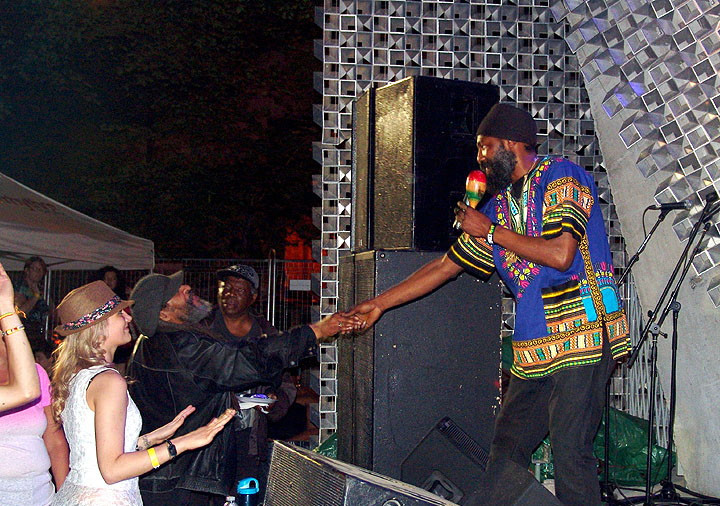SMALL AND MIGHTY VIBES
Soca Reggae Festival keeps it sweet and simple in their 10th year
Organizers of Winnipeg’s 10th annual Soca Reggae festival are unconcerned about everything else going on over their big festival weekend. The variables that they watch are the weather (as most Winnipeggers do), and other big reggae festivals who are competing for headliners.
Bands from all over the world send in submissions to play Soca, but are often drawn away to other locales or can’t fit Winnipeg into their itinerary. “May, June, July, August - those four months is kind of Caribbean reggae festival season, and everyone’s usually going to the bigger festivals in New York and Europe,” DJ Vibesman, one of the board members for the festival, says. The bigger acts “tend to be going there, we get stuck competing for entertainment.”
Despite being a smaller fish in a competitive pond, Soca’s bringing in names like Lenn Hammond and Leroy Gibbons from Jamaica, and Jah Cutta from Montreal, to compliment the bustling local talent.
You may recognize names like Natalya, the Kaya band and Idrissa & the Peacemakers Band from previous years of Soca, but that doesn’t mean that they’re any less fresh.
For Vibesman, bringing back talent means a chance to watch the development of artists and friends. Take Natalya, for example. “We’ve had her a few years, at least four or five years. It’s neat to see the evolution. She actually started with another band,” Vibesman says. “She learned to sing 10 years ago with that band, in the past couple of years she started to do her own thing.” This year, she’ll be fronting her own band.
Within the acts, all different kinds of reggae are represented as well. “A lot of the local bands they do their original stuff, their Caribbean cover tunes, there’s different styles of reggae, it’s a full blend,” Vibesman says.
Idrissa, who came from Sierra Leona, brings a distinct style to the festival with his band. “He has a nice African style reggae, although he sings in English, he’s got the African flavour to it,” Vibesman says. Other artists, like Kapone, bring more of a dance hall style.
While the scene is getting smaller, Soca itself - and the artists that play it - are still growing. Easy access to recording technology has enabled a lot of these artists to produce their own albums, and come Soca time, they have the opportunity to showcase their work for a supportive local crowd.
These albums, as well as tshirts and hats, are also available for purchase at the festival. Within the square, carribean food vendors are ready to fill your bellies, and their beer garden promises much more reasonable prices - “it’s not as expensive as other places,” Vibesman says.
The whole event is put together by a small board of about ten people, and even in the 10th year, they’re more concerned about keeping their independence and keeping ticket prices low than in lofty plans for growth.
“It’s set up in a way that with or without government funding, we can still produce the event,” Vibesman explains. “Most of the funding is from admission price and the sponsors. It’s set up in a way that we can scale it up or scale it down, depending on the funding.”
Admission itself is kept simple: children under 12 are free, there are no advance sales, just tickets at the gate, which will probably be under $10. “For less than $10 you can get entertainment all night, every hour is a different band,” Vibesman promises. And, weather permitting, that sounds like a fantastic deal.
Part of the series: The 7th Annual Summer Festival Guide
Published in Volume 69, Number 27 of The Uniter (June 3, 2015)







